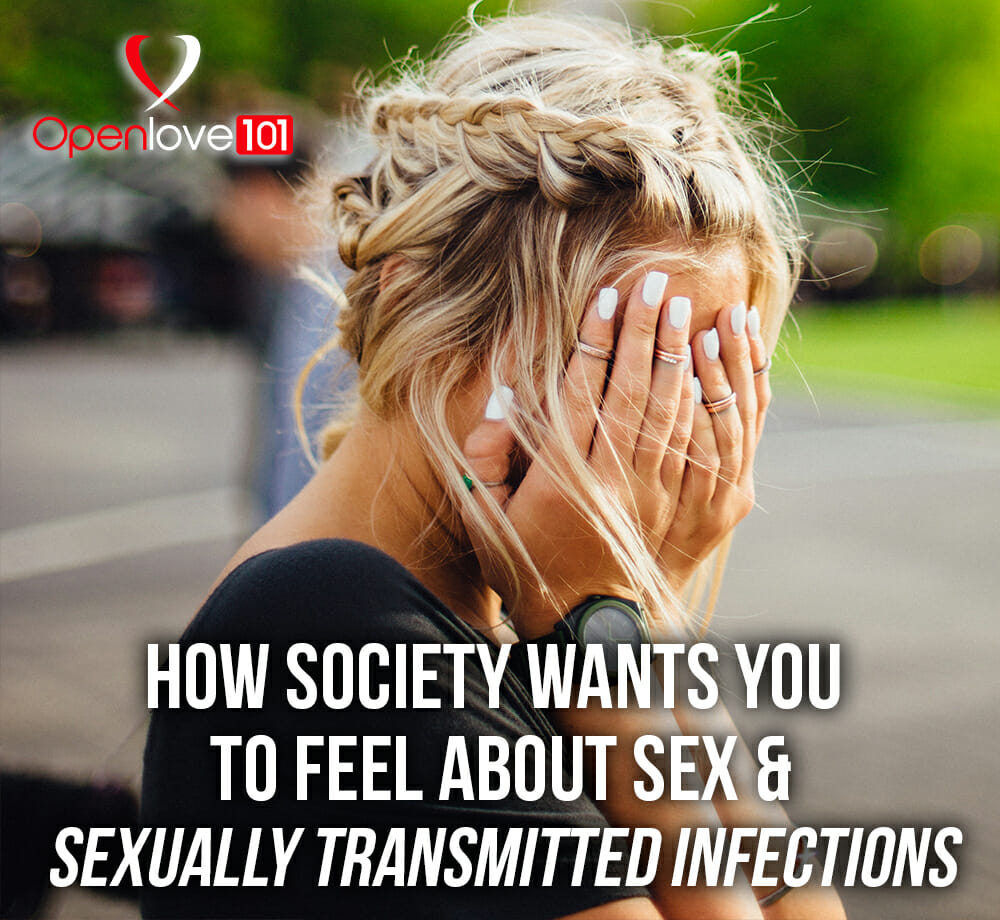I’m going to do it! I debated long and hard about whether or not I even wanted to cross this bridge, but I decided it was high time that those of us with a healthy view of sexuality join forces to tackle the stigma around one of our most basic instincts – sex!
Most of us know, (thanks to the information age) that sex provides a plethora of emotional and physical benefits.
We read articles every day in a huge array of publications telling us why we should be having sex. It does everything: keeps your immune system humming, lowers your risk of heart attack, and reduces the risk of prostate cancer.
We are told sex improves our sleep and lowers our stress, and has even been shown to ease menstrual cramps during our periods.
Not to mention the times we engage in this rapturous release of endorphins in the hopes of creating a beautiful little bundle nine months later.
So here we are reading all of these fantastic health benefits about sex, yet at the same time, we are sandblasted with just as many articles about the evils of having sex! As long as you are engaging in sex that follows social norms, it’s marvelous. But, engage in sexual activity outside of the norm, and you are all but banished to the hillsides with the rest of the deviants.
I decided to write about this topic after recently reading a very thought provoking article, “People Are Terrified of Sex,” written by Brian Earp, which, by the way, I encourage all my readers to read as well. The article follows a new study given by Terri D. Conley, Associate Professor of Psychology, at the University of Michigan, in which participants were asked a series of questions and were then given a series of vignettes dealing with the topic of sex.
Even though I expected the results to be somewhat negative regarding the view of sex as a society, I was still astounded by the results and responses given during the study. The very first scenario involved this question,
“Imagine that a thousand people—randomly selected from the U.S. population—had unprotected sex yesterday. How many of them will eventually die from contracting HIV from that single sexual encounter?
Now, imagine a different thousand people. These people will drive from Detroit to Chicago tomorrow—about 300 miles. How many will die on the trip as a result of a car crash?
Which of those two numbers is bigger?”
Yep, you got it before I even said it. The participants not only accorded much higher risk to those engaging in unprotected sex than those involved in a car accident but surprisingly, the results were actually backwards. According to the study, “statistics from the U.S. Centers for Disease Control and Prevention and the United States National Highway Traffic Safety Administration, you are actually 20 times more likely to die from the car trip than from HIV contracted during an act of unprotected sex.”
As a result of the initial test, Conley wanted to see if there was, in fact, a correlation between the idea that sex-related risks are more stigmatized than other types of risk, so she decided to run a follow-up study. And, as Brian Earp wrote in his article, “this study would compare “apples to apples” — two cases where a health threat was transmitted through sex, but only one of which was an actual STI.”
The study compared chlamydia, a common STI that rarely causes serious health problems (and that can be completely cured with a course of antibiotics), or H1N1 – commonly known as the swine flu – which can be seriously bad for your health or even kill you. The participants in the study were given a written scenario in which someone unknowingly transmits one of these infections during a sexual encounter. The scenarios ranged from transmitting a “mild” case of chlamydia to the swine-flu, where the result was death. The participants were then asked to say what they thought about the person who transmitted the infection.
Are you ready for the response?
According to the study, “The results were surprising. Participants who read the story about someone unknowingly transmitting chlamydia — with a “mild” outcome — judged that person more harshly than participants who read about the swine – flu case where the other person actually died!”
I have to admit, I was surprised by the results. How is it possible in this day and age, with all the medical information at our fingertips, we as a society can still justify this type of unbalanced prejudice?
Now, don’t get me wrong, I’m not saying we should be careless with those we come in contact with sexually or casually for that matter, because, just like anything else medically, we have learned a great deal about protecting ourselves from a wide range of infections, everything from the flu and the common cold to chlamydia and herpes.
What I did find so interesting about the article is society’s view of sex in general. Not only does the study show how skewed the view is, but how the negative stigma continues, even when science shows otherwise. Why?
Well, like Shawn Miller, a philosopher at Marquette University who focuses on love and sexuality said, “I do think the stigma is a proxy for moral judgment. Sexuality has always had to do with one’s moral character, and so if one has an STI, it suggests that one’s character is ‘infected’ as well.”
How sad in this day and age, we are still so freaked out by what are labeled “STIs” and those who catch them, while in the same moment we shrug our shoulders and accept so many other infections? Infections that can just as easily be contracted by close contact with one another! There are literally hundreds of infections swarming around us on a daily basis. Actually, according to Wikipedia, there are over 216 infections, both bacterial and viral.
What gets me, is how we view someone based on what infection they contract. Out of the over 216 infections, only 20 or so are considered “sexually transmitted,” but boy oh boy do those 20 seem to get all the attention. Why? Well, if you ask me, again, it’s because of sex.
Take chicken pox for instance. Chickenpox is a form of herpes, yet no one is stigmatized when they catch it or tell people they have it, or give it to someone else. In an article writhen “Chicken Pox is a Form of Herpes“, once a person is infected by a Herpes virus (any one of the eight strains humans can catch, and yes, that includes chickenpox and herpes), the infection will remain for life. It doesn’t matter the type; once the initial infection heals, the virus itself will lay dormant in the nuclei of peripheral nerves, held there by specific antibodies in a person’s immune system.”
But if someone has HSV-2 (genital herpes) the media is alerted! Don’t misunderstand, I’m not saying herpes and chickenpox are the same, because they are different strains, but they do come from the same family, the herpes family. My point is, most people will be much more accepting of someone who has or gives chickenpox to another than someone who has genital herpes, even though both will remain in the body forever.
This response, as I said earlier, comes from the belief that one is associated with sex and one is not.
So how do we change the way we view sex? Well, the first thing we can do is to stop judging people based on an infection. We need to see infections, ALL infections for what they are – infections.
Instead of making certain infections dirty, we should view them all the same – as foreign microorganisms invading our bodies. Instead of spending precious time pointing fingers at one another and bad mouthing one infection over another, maybe we should embrace the fact that the world of medicine is advancing daily in its knowledge of how each infection works against our bodies and relish in the fact that so many cures and treatments have been found in treating each and EVERY one of the 216 infections surrounding us.
The other thing we can do is stop treating sex as something immoral, and instead view it as something natural. It is natural to engage in sex. It is actually quite natural to engage in sex with more than one person. Let’s face it, sex is pleasurable!
We love having it, reading about it, writing about it, talking about it, listening to it, watching it, and fantasizing about it.
Besides, morality is fluid, it changes with the times. What used to be acceptable one day may not be acceptable tomorrow, so let’s get real about sex. Sex is constant, it is not a “standard of behavior,” it is natural and a vital part of our existence.
Just think, we are the current success story in generational evolutionary travel! So, instead of trying to squash what evolution has deemed a success, let’s embrace what we have been designed to achieve!
STUDY REFERENCED IN ARTICLE: Sexuality-Related Risks are Judged more Harshly than Comparable Health Risks

John and Jackie Melfi are in a consensually non monogamous marriage. They have been featured in ABC News Nightline Special Report “Getting Naughty In N’awlins”, Inside a New Orleans Swingers Convention, and CNN “This Is Life” with Lisa Ling. The Melfis are the force behind the industry famous colette swingers clubs in New Orleans, Dallas, Houston, and Austin. With over 20 years of combined experience, this powerhouse couple coaches thousands of singles and couples through their award winning blog Openlove101.com.

